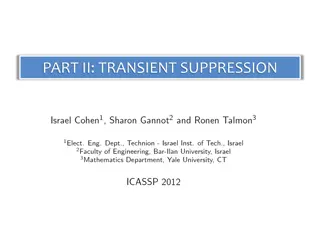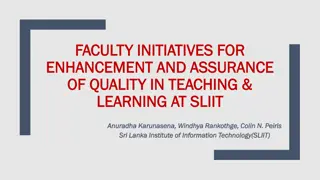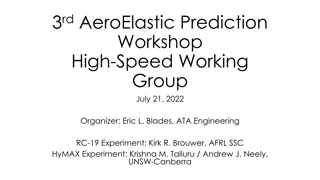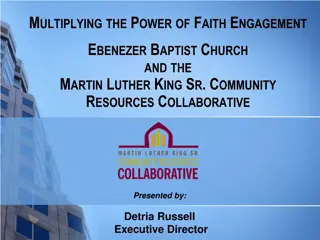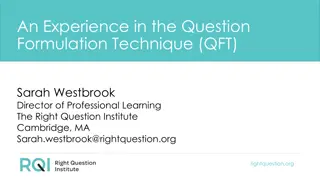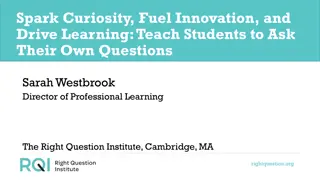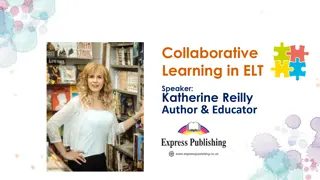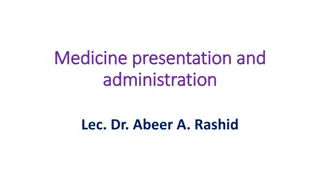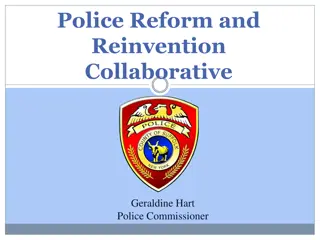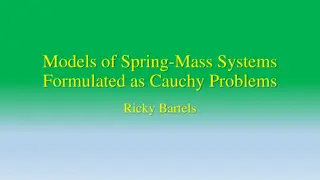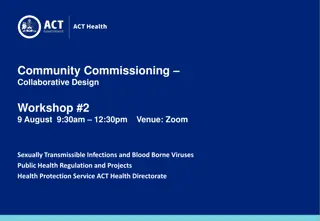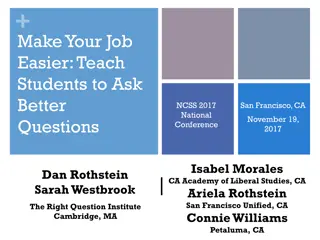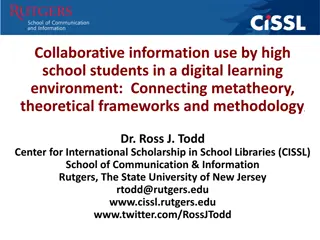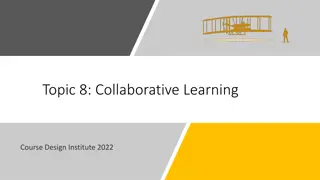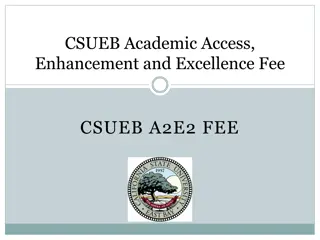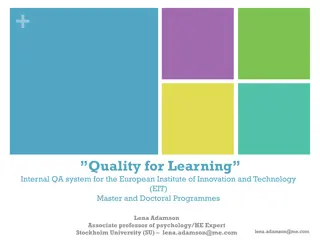Collaborative Question Formulation Workshop for Learning Enhancement
Explore the significance of question formulation in learning through collaborative techniques at a workshop hosted by The Right Question Institute. Discover how asking the right questions leads to inclusive education and fosters critical thinking skills among students. Insights from renowned personalities emphasize the importance of framing analytical inquiries for a deeper understanding of various subjects.
Download Presentation

Please find below an Image/Link to download the presentation.
The content on the website is provided AS IS for your information and personal use only. It may not be sold, licensed, or shared on other websites without obtaining consent from the author. Download presentation by click this link. If you encounter any issues during the download, it is possible that the publisher has removed the file from their server.
E N D
Presentation Transcript
+ Getting to the Right Questions: Germination Workshop Working Collaboratively with the Question Formulation Technique The National Science Foundation June 21, 2018 Dan Rothstein Luz Santana The Right Question Institute Cambridge, MA
+Acknowledgments We are grateful to the National Science Foundation (grant #1745919), the John Templeton Foundation and the Hummingbird Fund for their generous support for our work in education. We are very grateful to Professor Dan Perlman, Brandeis University, and Tomoko Ouchi and the whole team at the Right Question Institute for their valuable contributions to this session.
Our Agenda I. The Role of Question Formulation in Learning II. Collaborative Thinking with the Question Formulation Technique (QFT) III. Universal Relevance IV. Asking Questions as a Pathway to Greater Inclusion
+Who is in the room? Break into small groups Introduce yourselves
+ I. The Role of Question Formulation in Learning
+ "There is no learning without having to pose a question." - Richard Feynman Nobel-Prizewinning physicist
+ I am happy just to be asking the right questions: "This is for the love of understanding how the world works - what it really is." You want to find the question that is sufficiently easy that you might be able to answer it, and sufficiently hard that the answer is interesting. You spend a lot of time thinking and you spend a lot of time floundering around." Edward Witten The Institute for Advanced Study, Princeton, New Jersey
We must teach students how to think in questions, how to manage ignorance. - Stuart Firestein Chairman of the Department of Biology at Columbia University
+College Presidents on What Students Should Learn in College The primary skills should be analytical skills of interpretation and inquiry. In other words, know how to frame a question. - Leon Botstein, President of Bard College the best we can do for students is have them ask the right questions. - Nancy Cantor, Chancellor of University of Illinois The New York Times, August 4, 2002
+Yetonly 27%of students believe college taught them to ask their own questions Alison Head, Project Information Literacy at University of Washington, 2016
+Research Confirms the Importance of Student Questioning Self-questioning (metacognitive strategy): Student formulation of their own questions is one of the most effective metacognitive strategies Engaging in pre-lesson self-questioning improved students rate of learning by nearly 50% (Hattie, p.193) John Hattie Visible Learning: A Synthesis of Over 800 meta-Analyses Relating to Achievement, 2008
Three Thinking Abilities Divergent Thinking Convergent Thinking Meta-Cognitive Thinking
+ Classroom Example: Kindergarten Teacher: Jennifer Shaffer, Walkersville, MD Topic: Non-fiction literacy Purpose: To engage students prior to reading a nonfiction text about alligators
+Student Questions Is the alligator camouflaged? Why do the babies have stripes? Are those baby crocodiles? Is it a mom or dad crocodile? What is the green stuff? Why are they in the water so low? 1. 7. Where are they going? 8. Why are the baby alligator s eyes white and the mom s black? 9. Why are baby alligators on top of the momma alligator? 10. Why does momma or daddy have bumps on them? 2. 3. 4. 5. 6.
+ Classroom Example: 4th Grade Teacher: Deirdre Brotherson, Hooksett, NH Topic: Math unit on variables Purpose: To engage students at the start of a unit on variables and assess their current skill level
+Question Focus 24 = + +
+Student Questions 1. Why is the 24 first? 2. What do the smiley faces mean? 3. Why are there 3 smiley faces? 4. How am I suppose to figure this out? 5. Is the answer 12? 6. Can I put any number for a smiley face? 7. Do three faces mean something? 8. Do the numbers have to be the same because the smiley faces are the same? 9. What numbers will work here? 10. Does it mean 24 is a really happy number? 11. Can we replace each smiley face with an 8? 12. Do any other numbers work? 13. Can we do this for any number? 14. Does it always have to be smiley faces? 15. Do we always have to use three things?
+ .Collaborative Thinking with the Question Formulation Technique (QFT)
+Rules for Producing Questions 1. Ask as many questions as you can 2. Do not stop to answer, judge, or discuss 3. Write down every question exactly as stated 4. Change any statements into questions
+Question Focus: Motivating Impactful Research Please write this statement at the top of your paper. Remember: Number the questions. Follow the rules.
+Categorizing Questions: Closed/ Open Definitions: Closed-ended questions can be answered with a yes or no or with a one-word answer. Open-ended questions require more explanation. Directions: Identify your questions as closed- ended or open-ended by marking them with a C or an O.
+ Discussion Closed-ended Questions Advantages Disadvantages
+ Discussion Open-ended Questions Advantages Disadvantages
+Improving Questions Take one closed-ended question and change it into an open-ended question. Closed Open Take one open-ended question and change it into a closed-ended question. Closed Open
+Strategize: Prioritizing Questions Review your list of questions Choose the three questions that most interest you. Keep in mind the Question Focus: Motivating Impactful Research. After prioritizing consider Why did you choose those three questions? Where are your priority questions in the sequence of your entire list of questions?
+Share 1. Questions you changed from open/closed 2. Your three priority questions and their numbers in your original sequence 3. Rationale for choosing priority questions
+ Reflection What did you learn? What do you understand differently about the idea of motivating impactful research?
+ .Universal Relevance
+The QFT, on one slide 1) Question Focus 2) Produce Your Questions Follow the rules Number your questions 3) Improve Your Questions Categorize questions as Closed or Open-ended Change questions from one type to another 4) Prioritize Your Questions 5) Share & Discuss Next Steps 6) Reflect 1. Ask as many questions as you can 2. Do not stop to discuss, judge or answer 3. Record exactly as stated 4. Change statements into questions Closed-Ended: Answered with yes, no or one word Open-Ended: Require longer explanation
+ Classroom Example: College Biology Professor: Rachel Woodruff, Ph.D. Assistant Professor of Biology, Brandeis University Topic: Molecular Biology Purpose: To build students research skills and prepare them to develop their own research proposal later in the semester
+Question Focus: Students read a complex molecular biology article Task: Ask as many questions as you can about the reading
+The Use of the Questions: Students individually generated questions about the article. In class, students discussed the key attributes of a good biological research question and compared it with other types of questions. Students formed groups and worked to improve their questions based on these attributes.
+ Classroom Example: College Biology Professor: Dan Perlman, Ph.D. Associate Provost of Innovation in Education, Professor of Biology, Brandeis University Topic: Ecology Purpose: Introducing and concluding a course on ecology
Question Focus Organisms Andrewartha, H. G.
+Classroom Example: College Biology Through their questions [about The Distribution and Abundance of Organisms] at the start of the semester, students identified ALL of the sub- disciplines in ecology, which led them to create a course of study for the semester. At the end of the semester, students compared their initial and final questions and saw how much more sophisticated their questions had become.
+Examples of Student Growth Start and end of an Ecology Course How do you measure species abundance? (start) How do you measure a species abundance if it has a naturally varying population size? (end) What are the typical patterns of abundance? Distribution? (start) When measuring distribution, how do we define a species when it gradually changes over space? (end)
+The Importance of Questions "Questions are the engines of intellect, the cerebral machines which convert energy to motion, and curiosity to controlled inquiry." - David Hackett Fischer, Historians' fallacies: Toward a logic of historical thought. Routledge and Kegan Paul, 1971. [The QFT] helps me by getting me to think about questions on my own it gets my mind in motion to think about the questions other people make." - 8th grade student in James Brewster s U.S. history class Gus Garcia Young Men s Leadership Academy, Austin, TX, 2015
In the Age of Google How should you respond when you get powerful new tools for finding answers? Think of harder questions.
. Asking Questions as a Pathway to Greater Inclusion
+Democracy We need to be taught to study rather than to believe, to inquirerather than to affirm. - Septima Clark See Chapter 6 on Septima Clark in Freedom Road: Adult Education of African Americans (Peterson, 1996).
+ We don t go to the school because we don t even know what to ask. LAWRENCE, MA, 1990
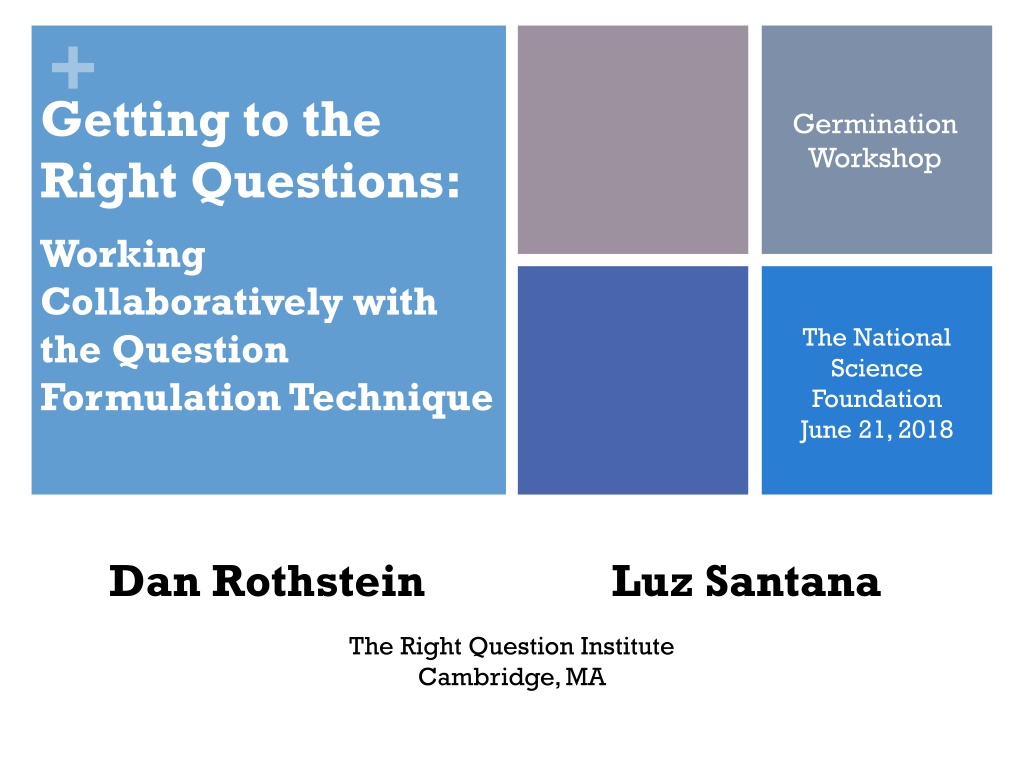
 undefined
undefined












